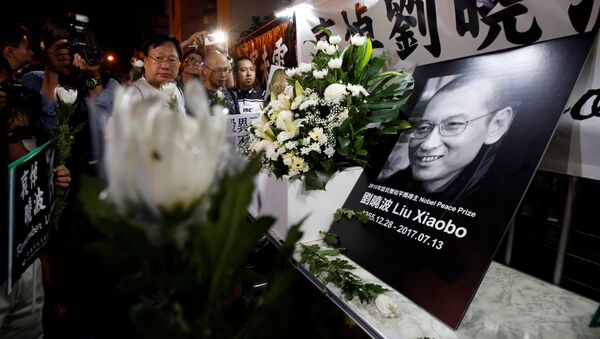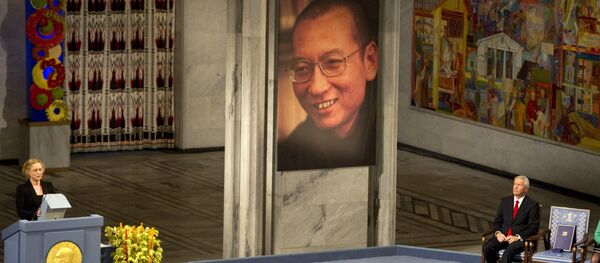MOSCOW (Sputnik) — Chinese dissident Liu Xiaobo, who won the Nobel Peace Prize in 2010 for his long and non-violent struggle for fundamental human rights, died of organ failure on Thursday, the Shenyang Legal Affairs Bureau said.
“Liu Xiaobo’s condition continued to deteriorate and [he] went under intensive care on July 10. He died of organ failure on July 13,” the statement read.
Liu was tried for "inciting subversion of state power" in 2009, a year after publishing the Charter 08 manifesto calling for overhauling democratic reforms in China. He was subsequently convicted and sentenced to 11 years in prison. In 2010, he was awarded the Nobel Peace Prize, triggering a massive diplomatic row between China and Norway. His prison term had been expected to be completed by 2020.
In May, Liu was diagnosed with late-stage liver cancer and was allowed to be transferred out of the prison to receive the necessary treatment in a hospital. Despite the calls on Beijing to allow the dissident to be treated overseas, the Chinese authorities remained uncompromising on this issue, warning against foreign involvement.
"We now have to come to terms with the fact that his chair will forever remain empty. At the same time it is our deep conviction that Liu Xiaobo will remain a powerful symbol for all who fight for freedom, democracy and a better world," the Norwegian Nobel Committee said in a statement on Thursday after learning the news of Liu's death.
"Promoting what Liu said can help continue to raise his legacy. We can explain to people what he meant by saying he has no enemy," Poon said.
In the Charter 08 manifesto, Liu expressed hopes that fellow Chinese citizens who feel a similar sense of crisis, responsibility, and mission, whether they are inside the government or not, and regardless of their social status, will set aside small differences to embrace the broad goals of establishing "a free, democratic, and constitutional country."



